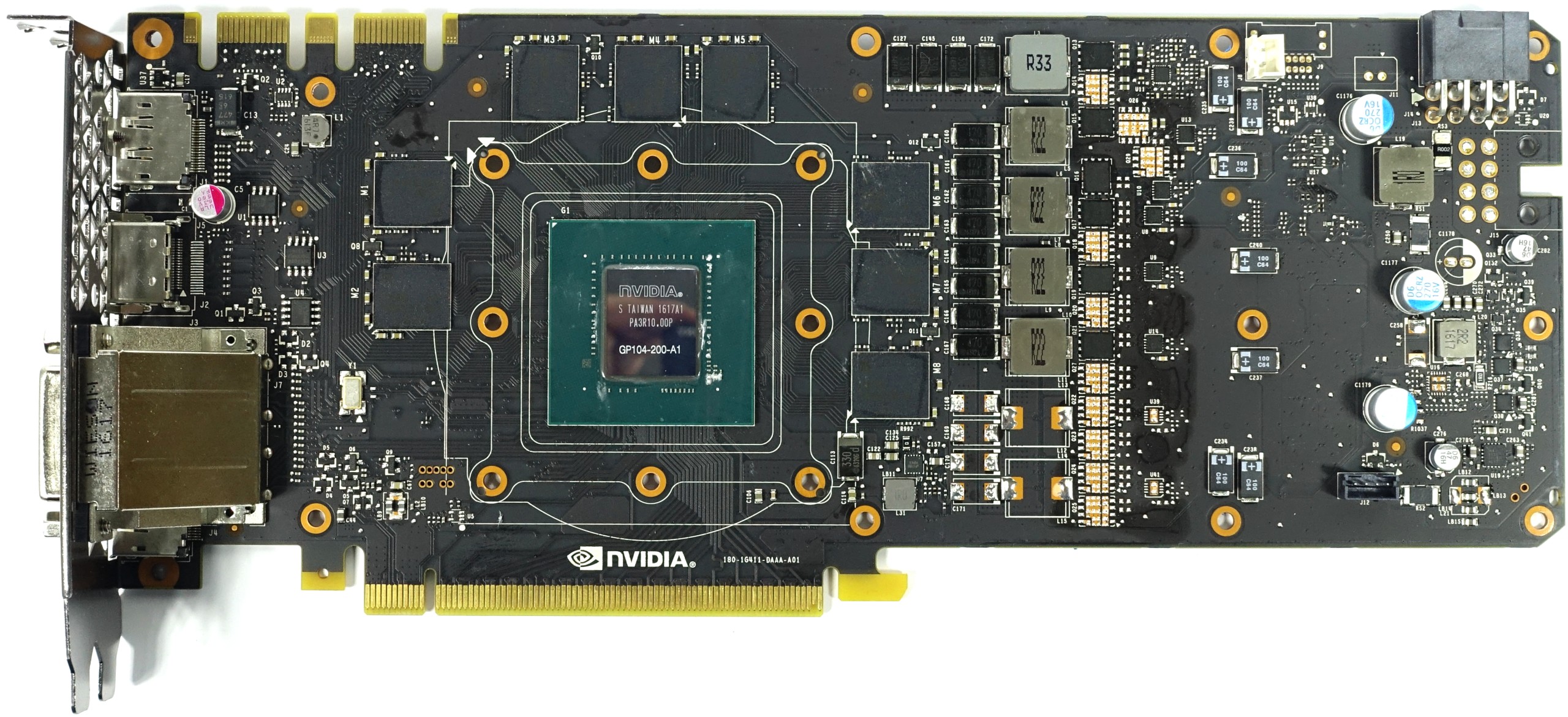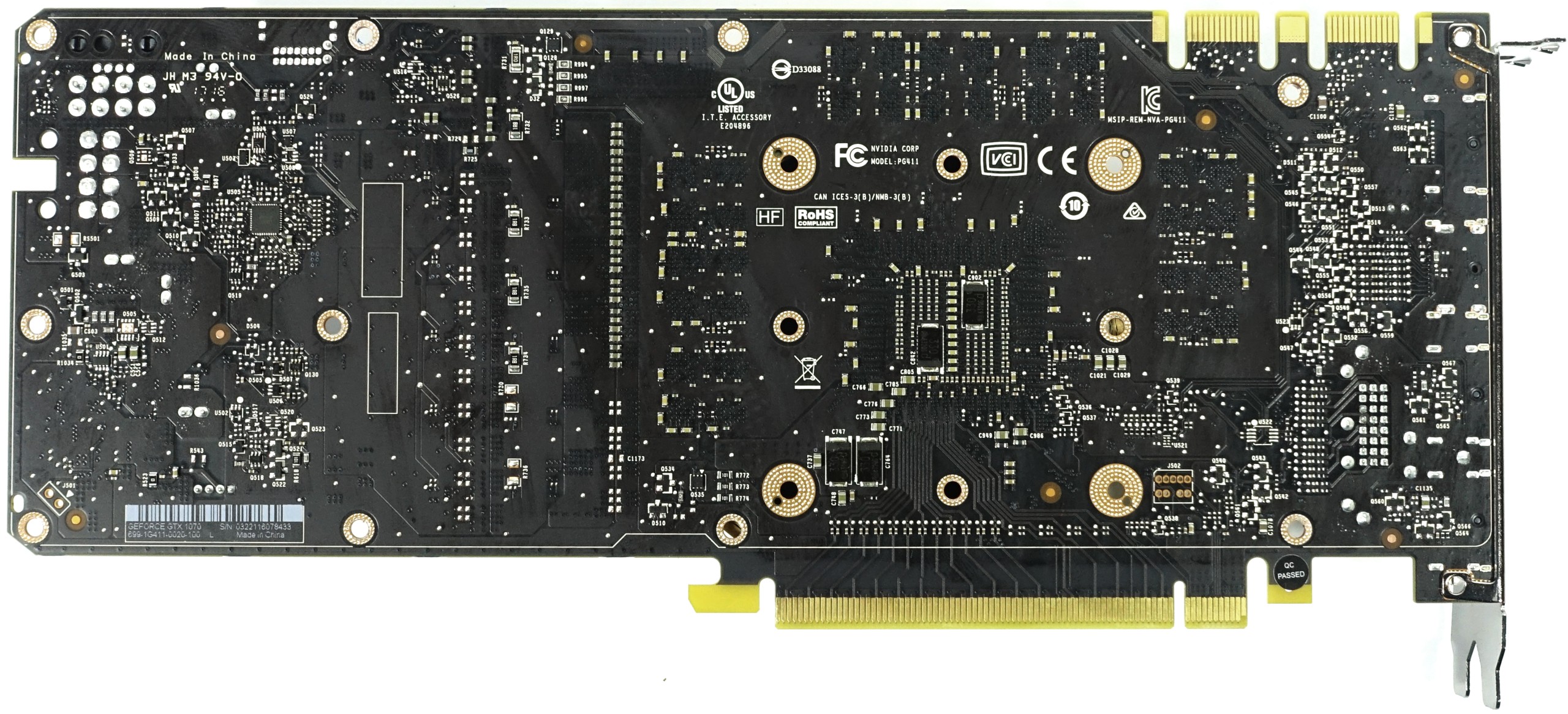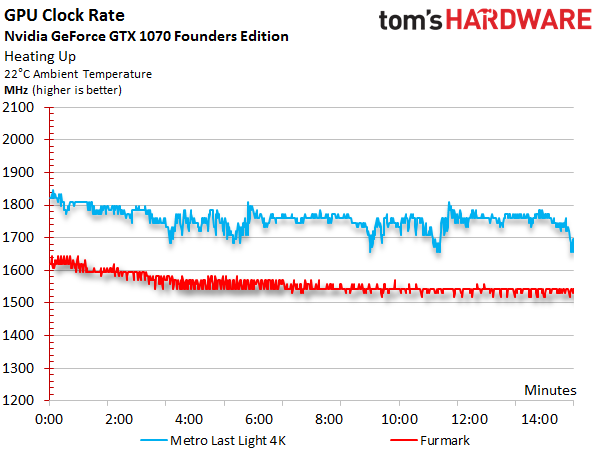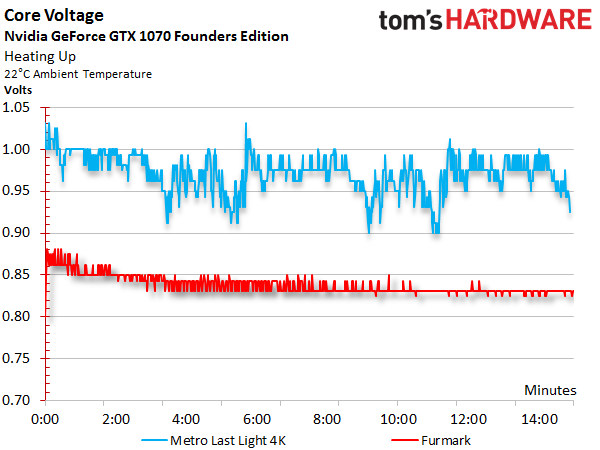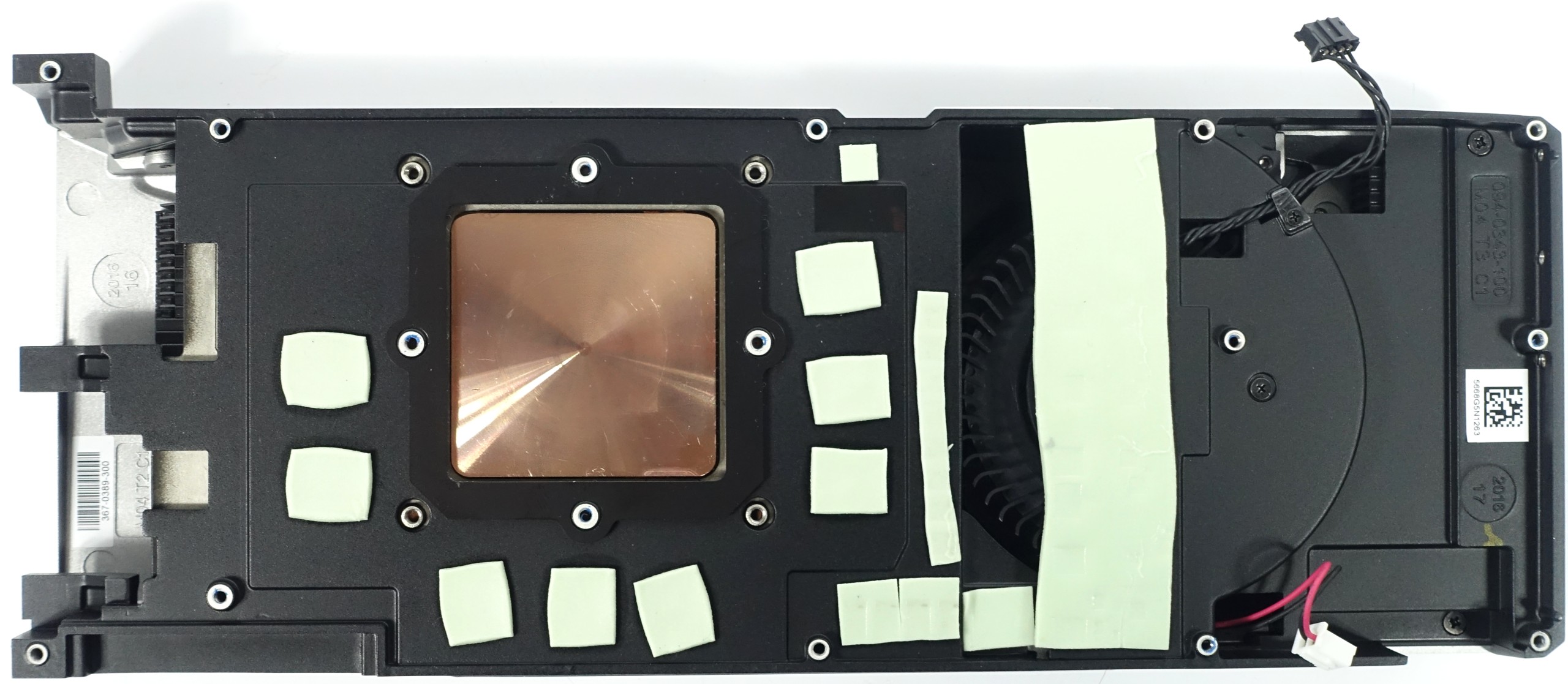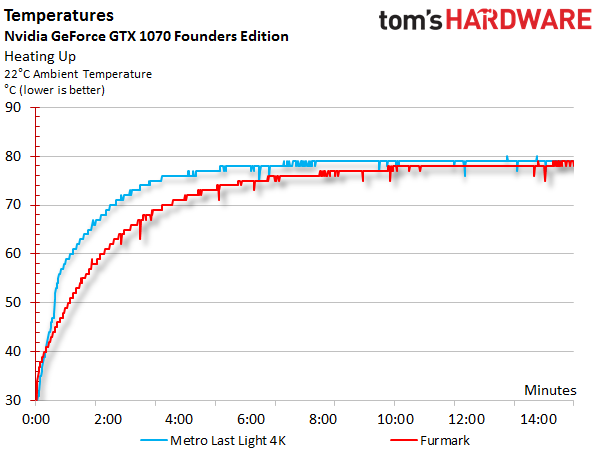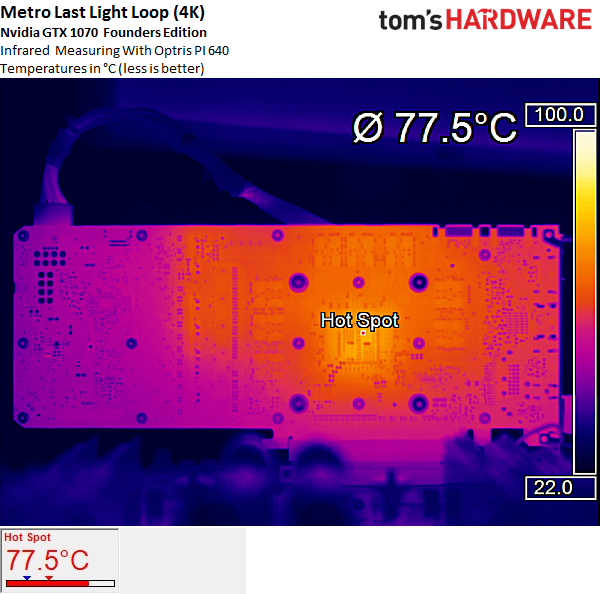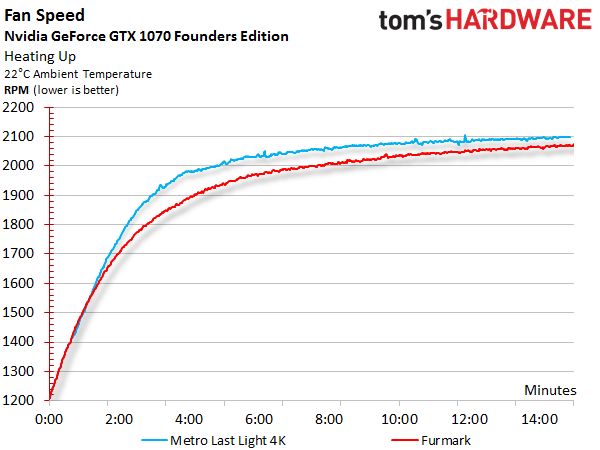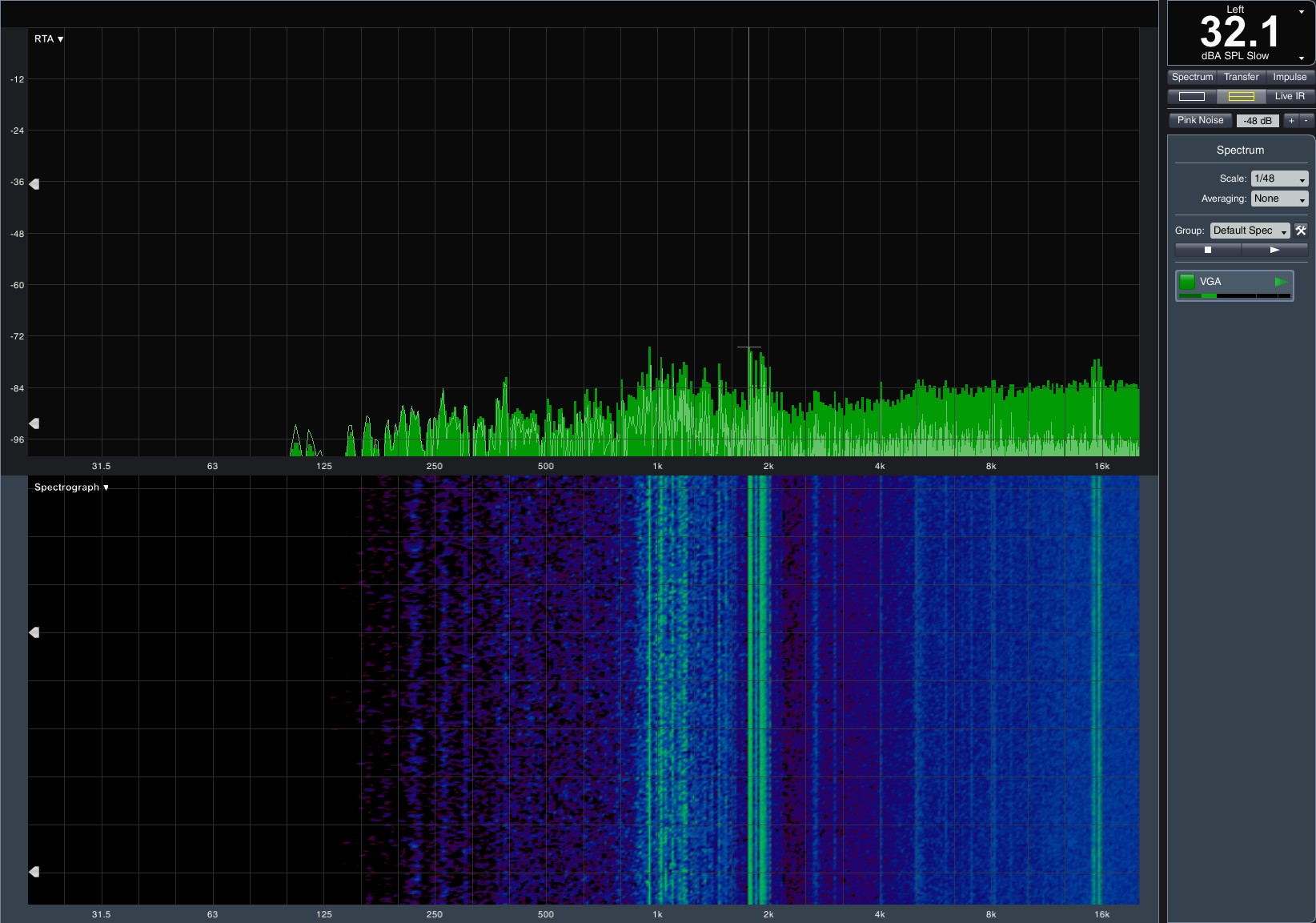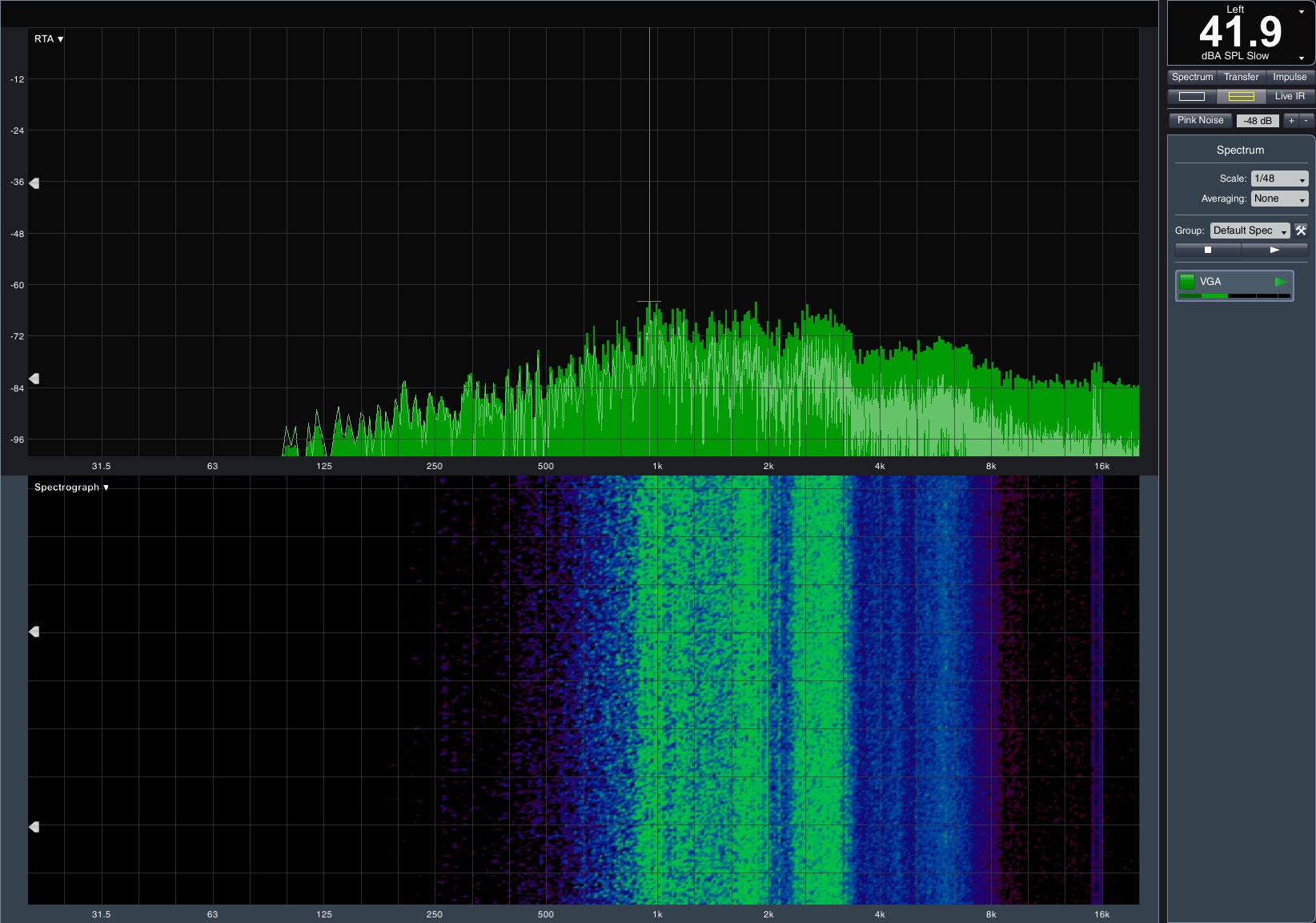Nvidia GeForce GTX 1070 Graphics Card Roundup
Nvidia GTX 1070 Founders Edition
Why you can trust Tom's Hardware
The GeForce GTX 1070 Founders Edition is based on the same GPU as Nvidia's GeForce GTX 1080, only with 25% of its CUDA cores and texture units disabled. As we learned in our Nvidia GeForce GTX 1070 8GB Pascal Review, though, the processor's back-end still serves up 64 ROPs and 2MB of L2 cache. Also, GDDR5X memory is replaced with standard GDDR5, while the 1070 sports a less sophisticated cooling solution and a lower power target of 150W.
The Founders Edition board is actually what Nvidia used to call its reference design. This time around, however, the company decided it wanted a piece of the premium card sales as well. Renaming its own offering is supposed to help sidestep the negative connotation that sometimes accompanies reference implementations.
Technical Specifications
MORE: Best Graphics Cards
MORE: Desktop GPU Performance Hierarchy Table
MORE: All Graphics Content
Exterior & Interfaces
The injection-molded aluminum cooler cover is metallic silver and black in color. Its design exudes quality, but the metal construction also contributes to the card's relatively high weight of more than 35 ounces (one kilogram).
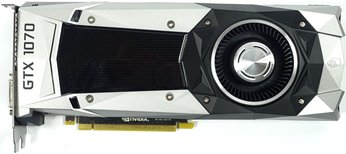
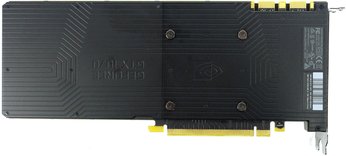
The back of the board is covered by a two-piece plate. It's purely aesthetic and does nothing for cooling. If you have a couple of cards next to each other in SLI or if you'd simply prefer more airflow, the backplate can be unscrewed without a problem.
There's an illuminated GeForce GTX label on top of the card, and an eight-pin auxiliary power connector is positioned toward the end.
Nvidia's angular and rugged design is certainly a matter of taste. But it certainly stands out. In a windowed case, you can count on turning heads.
Peeking down through the card's end reveals the heat sink's fins. The mounting frame offers up to three screws for attaching additional brackets. You'd use those for stabilization in a case.


The slot plate features five outputs, four of which can be used simultaneously in a multi-monitor setup. In addition to one dual-link DVI-D interface, the rear bracket also exposes an HDMI 2.0 output and three DisplayPort 1.4-compatible connectors. The rest of the plate is peppered with openings to encourage better airflow.
Board & Components
In addition to the one phase for memory, only four out of six available power phases for the GPU are implemented.
Nvidia leans on Samsung for its GDDR5 memory. Eight K4G80325FB-HC25 modules are each able to store up to 8Gb (32x 256Mb). Voltages are specified between 1.305V and 1.597V, depending on the clock rate.
The 4+1-phase system relies on the sparsely documented µP9511P PWM controller. Since this controller can't communicate directly with the VRM's phases, Nvidia utilizes 53603A chips for solid PWM drivers (gate drivers) and controlling the power MOSFETs (primarily of type 4C85N).
Two capacitors are installed right below the GPU to absorb and equalize peaks in voltage. The board design looks tidy and well thought-out.
Power Results
Before we look at power consumption, we should talk about the correlation between GPU Boost frequency and core voltage, which are so similar that we decided to put their graphs one on top of the other. This also shows that both curves drop as the GPU's temperature rises.
After warm-up, the GPU Boost frequency flirts with 1.7 GHz under load. This is mirrored by our voltage readings. While we measured up to 1.031V in the beginning, that value later dropped as low as 0.812V, if only temporarily.
Combining the measured voltages and currents allows us to derive a total power consumption we can easily confirm with our instrumentation by taking readings at the card's power connectors. In fact, let's start with the measured power consumption values in the following table:
| Idle | 9W |
|---|---|
| Idle Multi-Monitor | 12W |
| Blu-ray | 10W |
| Browser Games | 94-113W |
| Gaming (Metro Last Light 4K) | 148W |
| Torture (FurMark) | 150W |
These charts go into more detail on power consumption at idle, during 4K gaming, and under the effects of our stress test. The graphs show how load is distributed between each voltage and supply rail, providing a bird's eye view of load variations and peaks.
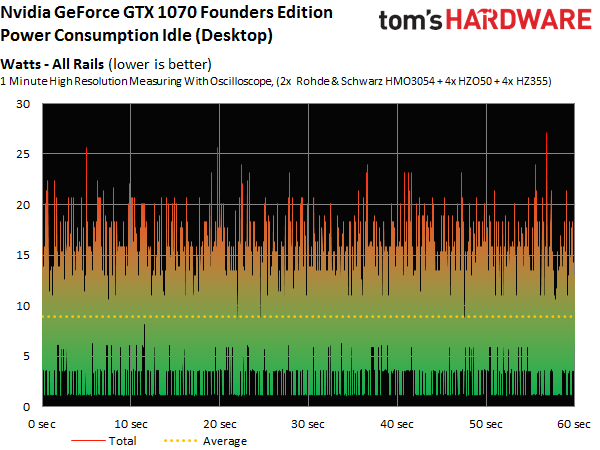
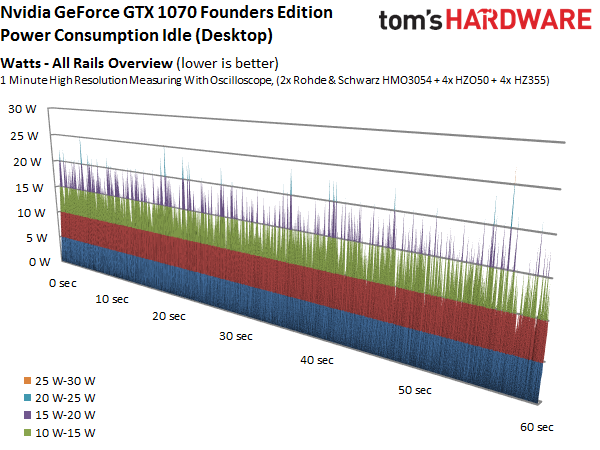
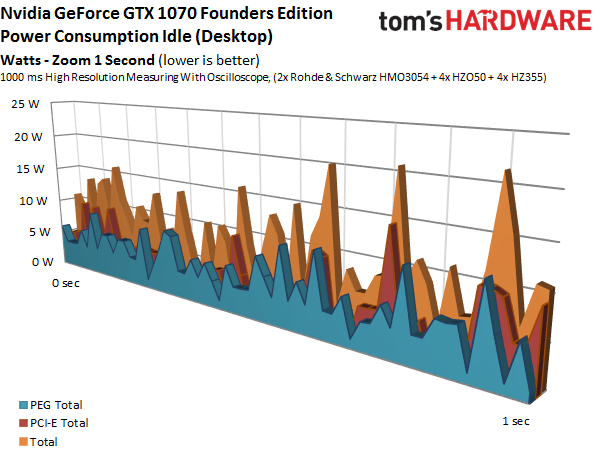
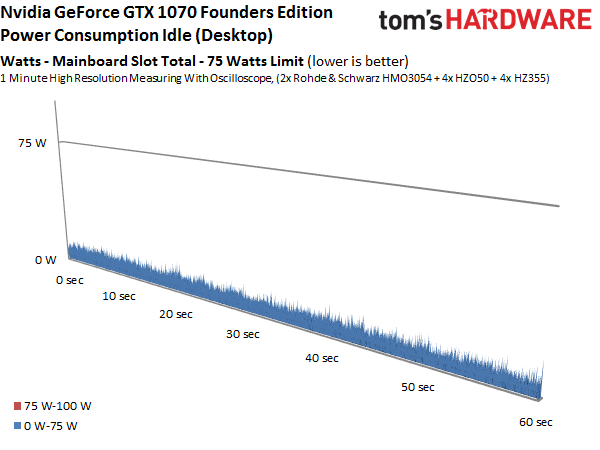
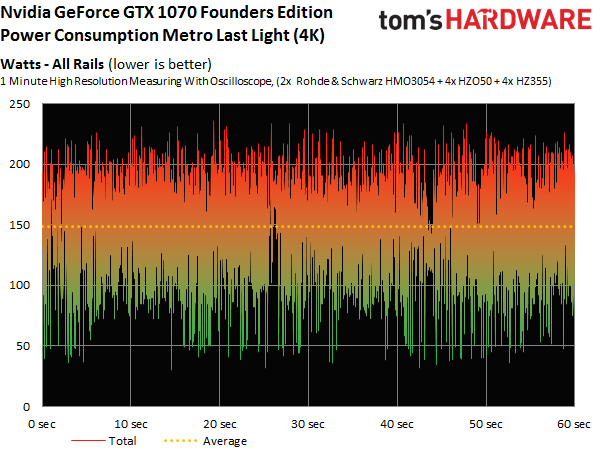
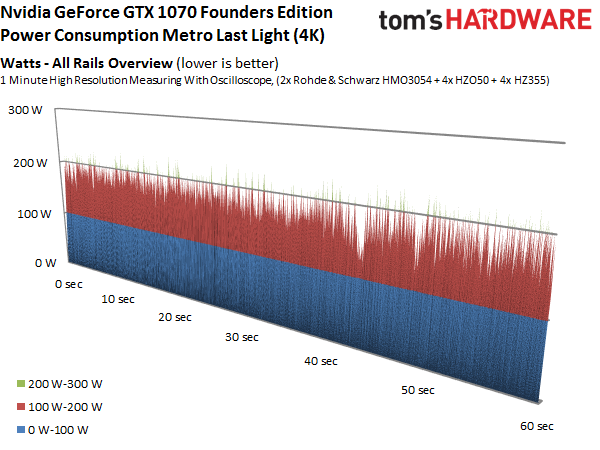
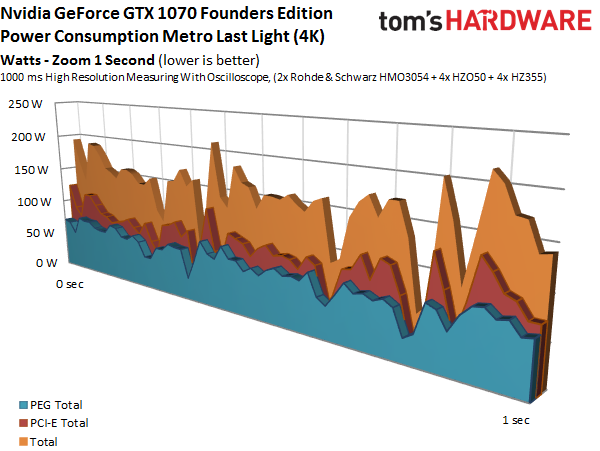
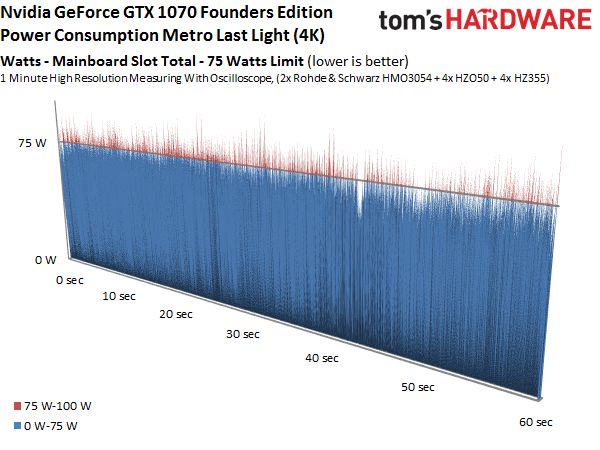
Temperature Results
As you can see from the 1070's cooler, Nvidia went with a simple copper heat sink instead of the GeForce GTX 1080's vapor chamber-based solution. Given the price of this card, that's a rather incomprehensible cost-cutting measure.
The beefy frame helps with rigidity, but it was also designed to host thick thermal pads, which dissipate waste heat from the MOSFETs and memory modules.
Unfortunately, Nvidia's cooling compromises have an effect on the temperatures we measured:
Not only does GP104 touch 176°F (80°C), it actually exceeds that value in a closed case. During the gaming loop in an open case, we measured 172°F (78°C) at the GPU package.
We observed similar power consumption during the torture loop, which is due to the fact that this card hits its power target. Not surprisingly, we also see corresponding temperatures.
Sound Results
As a consequence of the higher temperatures, Nvidia's fan has to work harder. During our stress test, the fan speed rose slowly in the beginning due to a lower clock rate. However, after about 30 minutes, it eventually caught up with what we saw during our gaming loop.
The obvious consequence of a spinning fan is noise. Yet, our acoustic measurements are still relatively moderate when the card is idle, despite the sound's slightly snarly character.
Under prolonged load, the noise levels reach almost 42 dB(A). That's still acceptable for a radial fan. At this point, the frequency spectrum becomes rather wide, so the noise doesn't feel too intrusive:
Overall, the radial fan solution is workable. But it's miles away from making this a quiet, gentle card.
Nvidia GeForce GTX 1070 Founders Edition
Reasons to buy
Reasons to avoid
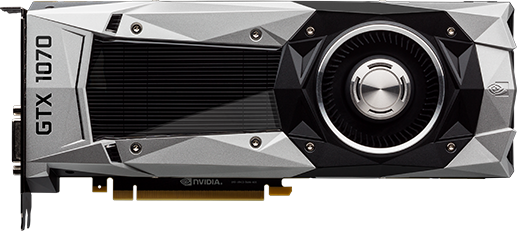
MORE: Best Deals
MORE: Hot Bargains @PurchDeals
Current page: Nvidia GTX 1070 Founders Edition
Prev Page Benchmark Results Next Page NEW: Asus ROG Strix GTX 1070Get Tom's Hardware's best news and in-depth reviews, straight to your inbox.

Igor Wallossek wrote a wide variety of hardware articles for Tom's Hardware, with a strong focus on technical analysis and in-depth reviews. His contributions have spanned a broad spectrum of PC components, including GPUs, CPUs, workstations, and PC builds. His insightful articles provide readers with detailed knowledge to make informed decisions in the ever-evolving tech landscape
-
adamovera Archived comments are found here: http://www.tomshardware.com/forum/id-3283067/nvidia-geforce-gtx-1070-graphics-card-roundup.htmlReply -
TheRev MasterOne Asus ROG Strix GeForce GTX 1070 and Gigabyte GeForce GTX 1070 G1 Gaming pics are switched ! Did I win something? a job?Reply -
eglass Disagree entirely about the 1070 being good value. It's the worst value in the 10-series lineup. $400 for a 1070 is objectively a bad value when $500 gets you into a 1080.Reply -
adamovera Reply
The filenames of the images are actually swapped as well, weird - fixed now, thanks!19761809 said:Asus ROG Strix GeForce GTX 1070 and Gigabyte GeForce GTX 1070 G1 Gaming pics are switched ! Did I win something? a job? -
barryv88 Are you guys serious!?? You recommend a 1070 card that costs $530 which isn't even available in the U.S? That sorta cash gets you a much quicker GTX 1080! The controversy on this site is just non stop. If your BEST CPU's list wasn't enough already...Reply -
bloodroses I wonder how the Gigabyte 1070 mini compares to the other mini cards like the Zotac and MSI unit?Reply -
adamovera Reply
This is a roundup of all the 1070's we've tested. The graphics card roundups originate with our German bureau and are re-posted in the UK, so they'll sometimes include EU-only products - I'm guessing they're appropriately priced to the competition in their intended markets.19761907 said:Are you guys serious!?? You recommend a 1070 card that costs $530 which isn't even available in the U.S? That sorta cash gets you a much quicker GTX 1080! The controversy on this site is just non stop. If your BEST CPU's list wasn't enough already...
The Palit received the lowest level award - the Asus, the MSI, and one of the Gigabyte boards are better options. -
JackNaylorPE Reply19761822 said:Disagree entirely about the 1070 being good value. It's the worst value in the 10-series lineup. $400 for a 1070 is objectively a bad value when $500 gets you into a 1080.
The 1080 , like it's predcessors (780 and 980) has consistently been the red headed stepchild of the nVidia lineup. So much so that nVidia even intentionally nerfed the performance of the x70 series because its performance was so close to the x80.
The 1080 has dropped in price because, sitting as it does between the 1080 Ti and the 1070... it doesn't exactly stand out. When the 780 Ti came out, the price of the $780 dropped $160 overnight, so much so that I immediately bought two of them and the two sets of game coupons knocked $360 off my XMas shoping list. At a net $650, it was a good buy.
Using the 1070 FE as a reference and the relative performance data published by techpowerup for example.....Used MSI Gaming model since it is one model line where TPU reviewed all 3 cards
The $404 MSI 1070 Gaming X is 104.2% as fast as the 1070 FE
The $550 MSI 1080 Gaming X is 128.2% as fast as the 1070 FE
The $740 MSI 1080 Ti Gaming X is 169.5% as fast as the 1070 FE
So the cost per dollar for comparable quality designs is:
MSI 1070 Gaming X = 104.2 / $404 = 0.258
MSI 1080 Gaming X = 128.2 / $550 = 0.233
MSI 1080 Ti Gaming X = 169.5 / $740 = 0.229
Even at $500 .. the 1080 only comes in 2nd place at 0.256, so no, the better value argument doesn't hold, even assuming we were getting an equal quality card.
Looked at other comparable as a means of comparison and they are for the most par equal or higher ....
Strix at $420, $550 and $780
AMP at $435, $534 and $750
Now with any technology, eeking those last bits of performance out anything always comes at a increased cost. You more of a cost premium going from Gold to Platinum rating on a PSU than you do from Bronze to Silver of even Gold. It's simply another example of Law of Diminishing Returns. So we should expect to pay more per each performance gain with each incremental increase and that hold here. You'd expect that for each increase in performance the % increase in price per dollar would get bigger. But the x80 is quite an aberration.
We get a whopping 10.7 drop of 0.025 from the 1070 to the 1080
We get a rather teeny 1.7 drop of 0.004 from the 1080 to the 1080 Ti
Therefore, logically.... you are paying a 10.7% cost penalty for the increased performance to move up to from the 1070 to 1080 ... whereas the cost penalty for the increased performance to move up to from the 1080 to 1080 Ti is only 1.7% This is why eacxh time the Ti has been introduced, 1080 sales have tanked.
Another way t look at it...
1070 => 1080 = 23% performance increase for $146 ROI = 15.8%
1080 => 1080 Ti = 32% performance increase for $190 ROI = 16.8 %
It's not a matter **if** you can get **a** 1080 at $500., it's whether you can get the one you want. How is it that the $550 models have more sales than the less expensive ones ? Some folks don't care about noise, some folks don't OC, some folks hope they will be able to get the full performance available to us **if** someone ever comes out with a BIOS editor. And yes, there will cards that are heavily discounted for any number of reasons ... low factory clock, noise or heat concerns , some have taken some hits from bad reviews or are discounted simply because sales are poor .... but if a card is selling well below the average price it is because it's not as well made or just isn't selling for real or imagined issues. (example being EVGA SC / FTW ACX designs are now fixed but but EVGA still has a black eye from the earlier cooler problems and if buying EVGA, peeps want iCX. Finally, the 1080 bears the burden of being compared with the 780 and 980 whicc again got lost between the higher / lower cards.
Given the above ROI numbers, I am surprised that all the 1080s have not dropped below $500. But to my eyes, the `080 only starts to make sense when the cost is below $520 and **the ones I'd buy** just aren't there yet
-
Adroid Yea I refuse to buy a 1070 because they are overpriced, period. I almost bought a 1080 but judging from the performance difference it simply wasn't worth it, either. There is not much a 1080 will do that a 1070 won't. What I mean is - a 1060 will run 1080p fine. With that in mind, a 1080 gives very marginal benefit at 2k, and neither one will run 4k smoothly - so what's the point.Reply
If the 1080 was a 350$ card, I might have bit, but as it stands now I'll be waiting for the 1080ti to drop a bit, which can run most games in 2k over 120fps - and justifying an upgrade from a GTX 700 series card. I'm not going to pay over $400 for a card that won't smoke my GTX 770... I can play all games on moderate settings now, so I want ultra settings at 2k that make use of a 144hz monitor - or bust. -
tyr8338 I`m using gigabyte 2 fan 1070 for over a year now and it`s really good, it`s good overclocker and is running at 1974 mhz overclock 24/7 and 8600 on ram, probably it would be able to go even higher but it`s fine for me :) It`s quiet but at around 50% fan speed it produces some strange vibration sound sometimes, it dosn`t bother me all that much tbh but it can be a little annoying.Reply



